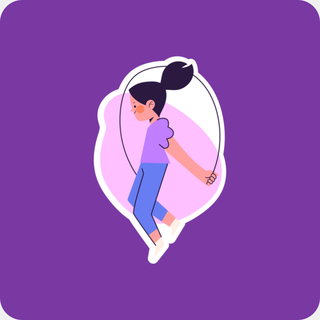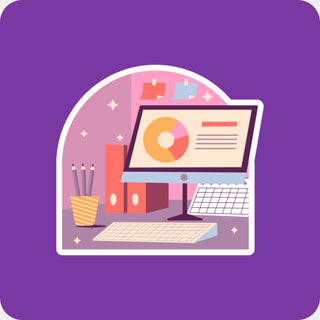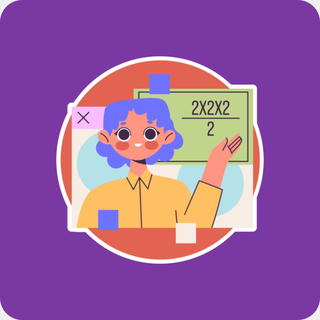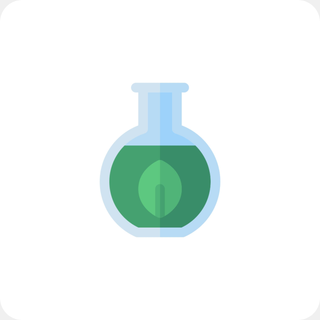As the sun rises, Meera Kapoor is already sketching new ideas, inspired by the colours of the morning sky. A day in her life is a whirlwind of creativity, from selecting fabrics in bustling markets to overseeing fittings in a high-energy studio. Mornings are spent fine-tuning designs, afternoons are filled with meetings with clients and suppliers, and evenings often lead to glamorous runway shows or last-minute alterations. Whether she’s designing for a luxury brand or a streetwear line, every detail matters, as her work sets the trends that shape the fashion world.
Who is a Fashion Designer?
A Fashion Designer is a creative professional who conceptualizes and creates clothing, accessories, and footwear. They blend art with functionality, ensuring their designs align with cultural trends, customer preferences, and brand aesthetics. Fashion Designers work in various sectors, including haute couture, ready-to-wear, and mass-market apparel.
Responsibilities of a Fashion Designer
-
Trend Research & Inspiration: Analyzing current fashion trends, cultural influences, and historical styles to create unique designs.
-
Sketching & Concept Development: Creating initial sketches and digital illustrations to visualize designs before production.
-
Fabric & Material Selection: Choosing the right fabrics, textures, and embellishments to complement the design.
-
Pattern Making & Sample Development: Translating sketches into patterns and developing prototypes for production.
-
Fittings & Alterations: Ensuring garments fit perfectly by collaborating with tailors and models for necessary adjustments.
-
Fashion Show & Brand Representation: Showcasing collections in fashion weeks, trade shows, and promotional events.
-
Collaboration with Merchandisers & Retailers: Working closely with buyers and manufacturers to bring collections to market.
The Uniqueness of Fashion Design
Fashion Design is unique because it blends art, business, and technology. It allows designers to express creativity while influencing culture, self-expression, and global trends. The industry constantly evolves, making it an exciting and fast-paced career.
Why Choose a Career in Fashion Design?
-
Creative Expression: A career that allows artistic freedom and innovation.
-
Global Influence: Designers shape trends worldwide and influence cultural aesthetics.
-
Diverse Opportunities: Careers in luxury brands, retail, costume design, sustainable fashion, and more.
-
High Earning Potential: Established designers earn lucrative incomes through brand deals, endorsements, and collections.
-
Entrepreneurial Scope: Designers can launch their own brands or work as freelance creatives.
Key Job Roles in Fashion Design
Apparel Designer
Apparel Designers create clothing for different markets, from high fashion to casual wear. They focus on silhouettes, fabrics, and detailing to produce stylish and functional outfits that cater to specific demographics. Their work involves research, sketching, material selection, and collaboration with manufacturers to ensure high-quality production.
Footwear Designer
Footwear Designers specialize in designing shoes, blending aesthetics with comfort. They work with materials like leather, synthetic fabrics, and sustainable alternatives to create stylish yet practical footwear for sports, luxury, or everyday wear. Their role includes prototype development, testing, and ensuring that the designs meet both fashion trends and ergonomic needs.
Accessories Designer
Accessories Designers focus on crafting handbags, jewellery, belts, scarves, and other fashion essentials. They blend craftsmanship with innovation to create statement pieces that complement apparel collections. These designers must understand material sourcing, colour theory, and consumer trends to create accessories that elevate fashion statements.
Textile Designer
Textile Designers create unique fabric patterns, prints, and textures used in clothing and accessories. They work with digital tools and traditional techniques like embroidery and weaving to develop visually striking materials. Their expertise in dyeing, printing, and surface ornamentation plays a crucial role in defining the aesthetic appeal of a collection.
Costume Designer
Costume Designers create clothing for films, theatre, and TV productions. They study characters, historical periods, and script requirements to design outfits that enhance storytelling and visual appeal. Their work often involves extensive research, sketching, and collaboration with directors and stylists to ensure authenticity and impact.
Sustainable Fashion Designer
Sustainable Fashion Designers prioritize eco-friendly materials and ethical production methods. They focus on creating fashion with minimal environmental impact, promoting upcycling, and advocating slow fashion. Their role involves using biodegradable fabrics, reducing waste, and ensuring fair-trade practices to contribute to a greener industry.
Educational Pathway to Becoming a Fashion Designer
Bachelor’s Degree
-
Bachelor of Design (B.Des) in Fashion Design
-
Bachelor of Fashion Technology (B.F.Tech)
-
Bachelor of Arts (BA) in Fashion Design
Master’s Degree (For Advanced Career Growth)
-
Master of Design (M.Des) in Fashion
-
Master of Fashion Management (MFM)
-
MBA in Fashion Business
Certifications & Online Courses
-
Fashion Illustration & CAD Design
-
Sustainable Fashion & Ethical Production
-
Textile Science & Fabric Innovation
-
Luxury Brand Management
-
Pattern Making & Draping Techniques
Hands-on Experience & Internships
Internships with fashion brands, design houses, and textile manufacturers provide real-world experience. Participation in fashion competitions and exhibitions enhances portfolio visibility.
Top Institutes Offering Fashion Design Courses
-
National Institute of Fashion Technology (NIFT), India – Premier institute for fashion education.
-
Pearl Academy, India – Known for its design and business programs.
-
London College of Fashion, UK – Specializes in fashion marketing and management.
-
Parsons School of Design, USA – Offers globally recognized fashion programs.
-
Istituto Marangoni, Italy – Renowned for luxury fashion education.
Current Job Market Trends in Fashion Design
Rise of Digital Fashion
Virtual clothing, NFT fashion, and AI-driven design tools are revolutionizing the industry, allowing designers to create digital-only collections for virtual avatars and gaming platforms.
Sustainable & Ethical Fashion
With increasing environmental awareness, there is a shift towards eco-friendly fabrics, zero-waste production, and fair-trade practices in fashion.
Gender-Neutral & Adaptive Fashion
Brands are embracing inclusivity by designing gender-neutral clothing and adaptive fashion for individuals with disabilities, enhancing accessibility in the industry.
Customization & Personalization
Personalized fashion, where consumers can tailor their designs through AI-powered platforms, is becoming a significant trend in e-commerce.
Indian Handloom Revival
Designers are incorporating indigenous textiles like Banarasi silk, Chanderi, and Kalamkari into modern fashion, promoting Indian craftsmanship on global platforms.
Future Job Market Projections for Fashion Designers
-
Growth of E-commerce & D2C Brands: Increasing demand for designers in online fashion businesses.
-
Sustainable Fashion Movement: More opportunities for eco-conscious designers.
-
Tech-Integrated Fashion: Expansion of AI-driven fashion and smart textiles.
-
Luxury & Streetwear Boom: Demand for high-end and urban fashion designers is rising.
-
Expansion in Bollywood & Entertainment Industry: High demand for costume designers in films and OTT platforms.
Conclusion
Fashion Design is a dynamic career that blends creativity with business. Whether you dream of launching your own label or designing for a global fashion house, this field offers endless opportunities for innovation and impact.
Discover top career opportunities and expert guidance in Fashion Design at Fundaspring Career Guidance.































